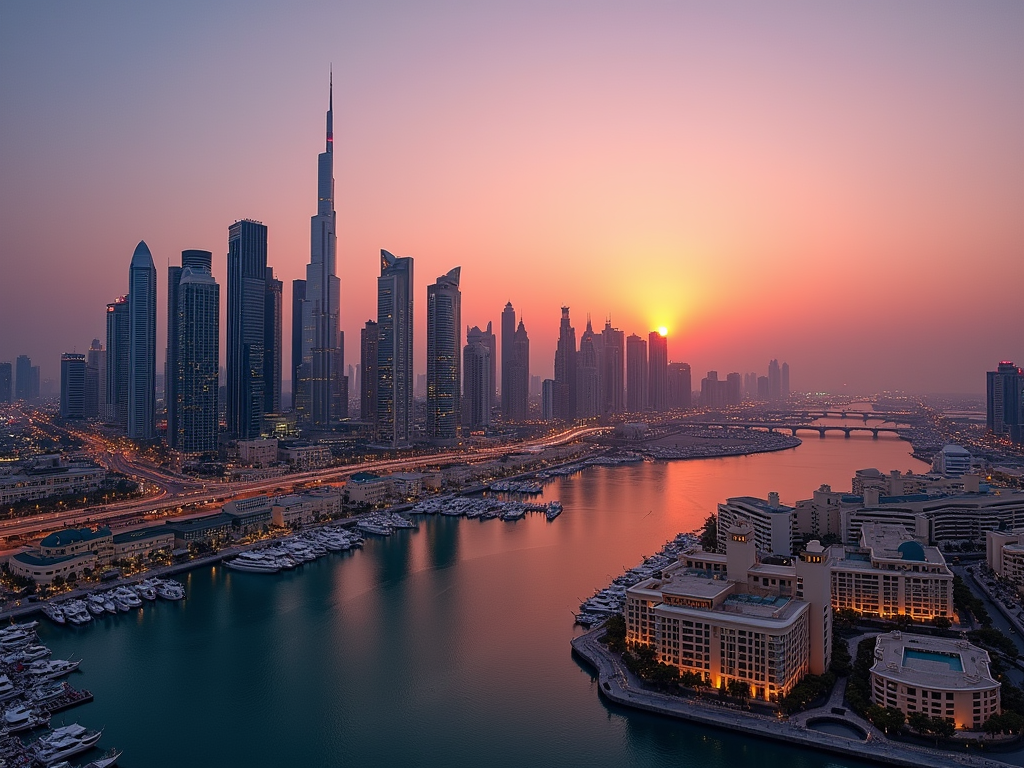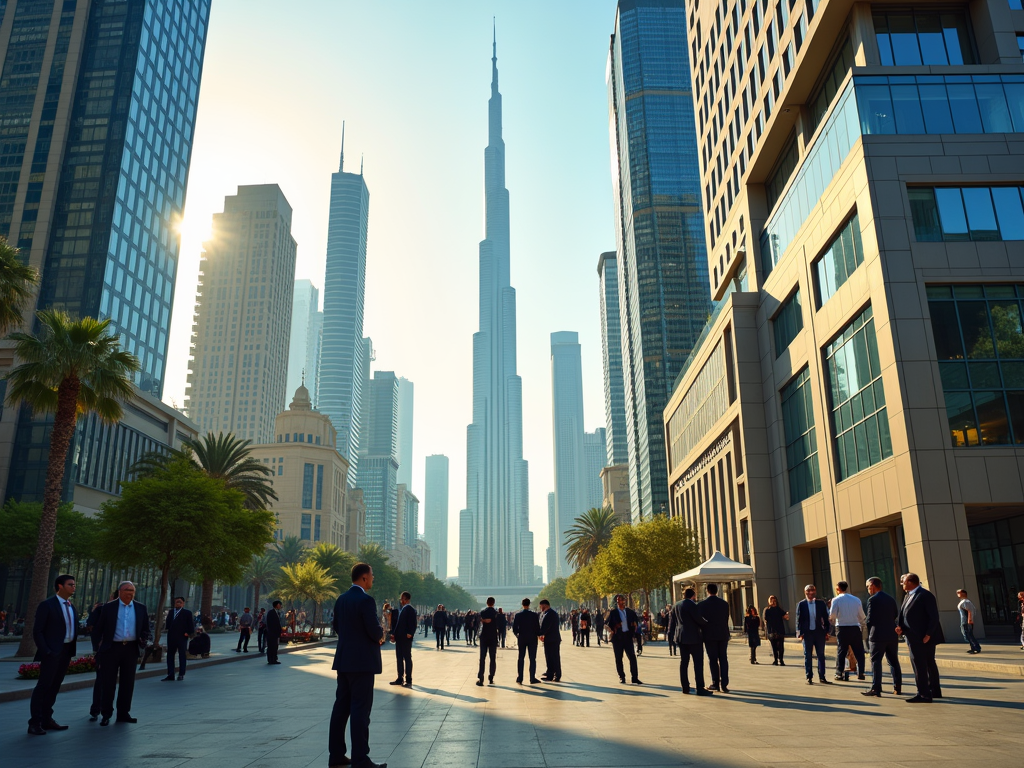Dubai has emerged as a critical hub in the global business landscape, distinguished by its strategic location, robust infrastructure, and business-friendly policies. The Emirate serves as a nexus for trade, finance, and innovation, attracting entrepreneurs and multinational corporations alike. With its unique blend of modernity and tradition, Dubai not only supports local businesses but also plays a pivotal role in facilitating international trade and investment. This article explores the multifaceted contribution of Dubai to global commerce, the factors driving its success, and its future potential.
The Strategic Location of Dubai

Dubai’s geographical positioning is one of the primary factors contributing to its global business significance. Situated at the crossroads of Europe, Asia, and Africa, Dubai offers unparalleled access to key markets. This advantageous location allows businesses to reach over 2 billion consumers within a 4-hour flight. Furthermore, Dubai’s proximity to the Gulf region, a major trade area, enhances its role as a regional hub. The city’s well-established transportation networks—including one of the world’s busiest airports, Dubai International, and a major seaport, Jebel Ali—facilitate efficient logistics and shipping. As a result, Dubai remains an attractive destination for companies looking to expand their reach in the Middle East and beyond.
Business-Friendly Environment

Another significant aspect of Dubai’s role in the global business landscape is its supportive regulatory framework. The Emirate has implemented various initiatives aimed at fostering a competitive business environment. Notably, Dubai offers free zones that provide 100% foreign ownership, exempting businesses from local laws that often require partnership with a local sponsor. Moreover, Dubai has established a robust legal system that protects investor rights, promoting transparency and trust. The government also actively encourages foreign investment through incentive schemes and tax benefits, making it an attractive destination for entrepreneurs. This proactive approach has positioned Dubai as a global leader in business innovation and entrepreneurship.
Dubai’s economic landscape is characterized by significant sectoral diversification, reducing dependency on oil revenues. Key sectors contributing to this diversification include:
- Tourism and Hospitality: With its luxurious hotels, shopping malls, and cultural attractions, Dubai has become a premier tourist destination, attracting millions of visitors annually.
- Financial Services: The Dubai International Financial Centre (DIFC) serves as a global financial hub, offering a world-class regulatory framework and access to international markets.
- Technology and Innovation: Dubai is rapidly advancing as a technology hub, supported by initiatives like Smart Dubai, which aims to transform the city into a smart, sustainable oasis.
- Logistics and Trade: The presence of modern ports and airports bolsters Dubai’s position as a leading trade and logistics center in the region.
Such diversification not only enhances economic stability but also attracts a broad range of global investors seeking opportunities in various industries.
Innovation and Technology in Dubai
Innovation is at the heart of Dubai’s growth strategy, positioning itself as a leader in technology and digital transformation. The government has launched multiple initiatives to promote innovation, such as the Dubai Future Foundation and various tech accelerators that support startups and entrepreneurs. Moreover, Dubai is committed to becoming a smart city, integrating advanced technologies in sectors such as transportation, healthcare, and energy. Notable developments such as the Dubai Blockchain Strategy aim to leverage digital tools to enhance government services and business operations. As a result, Dubai attracts tech talent and venture capital from around the world, reinforcing its position as a global business innovator.
Conclusion
In conclusion, Dubai’s strategic location, business-friendly environment, sectoral diversification, and commitment to innovation are pillars of its influence in the global business landscape. The Emirate not only serves as a vital trade corridor but also stands as a beacon for international investment and entrepreneurship. As Dubai continues to evolve and adapt to the changing global economy, its role in shaping the future of business is set to become even more pronounced, solidifying its status as a key player on the world stage.
Frequently Asked Questions
1. What are the main reasons for Dubai’s success as a business hub?
Dubai’s success stems from its strategic location, supportive regulatory environment, diverse sectors, and a strong focus on innovation and technology.
2. How does Dubai attract foreign investment?
Dubai attracts foreign investment through free zones, tax incentives, 100% foreign ownership options, and a transparent legal framework that protects investor rights.
3. What sectors are thriving in Dubai?
Key thriving sectors in Dubai include tourism and hospitality, financial services, technology and innovation, and logistics and trade.
4. What initiatives is Dubai implementing to become a smart city?
Dubai is rolling out initiatives like the Smart Dubai plan, which includes enhancing government services through digital technologies and fostering an innovation ecosystem.
5. How does Dubai’s geographical location benefit businesses?
Dubai’s location provides businesses access to over 2 billion consumers within a 4-hour flight, making it a prime hub for trade and commerce.


